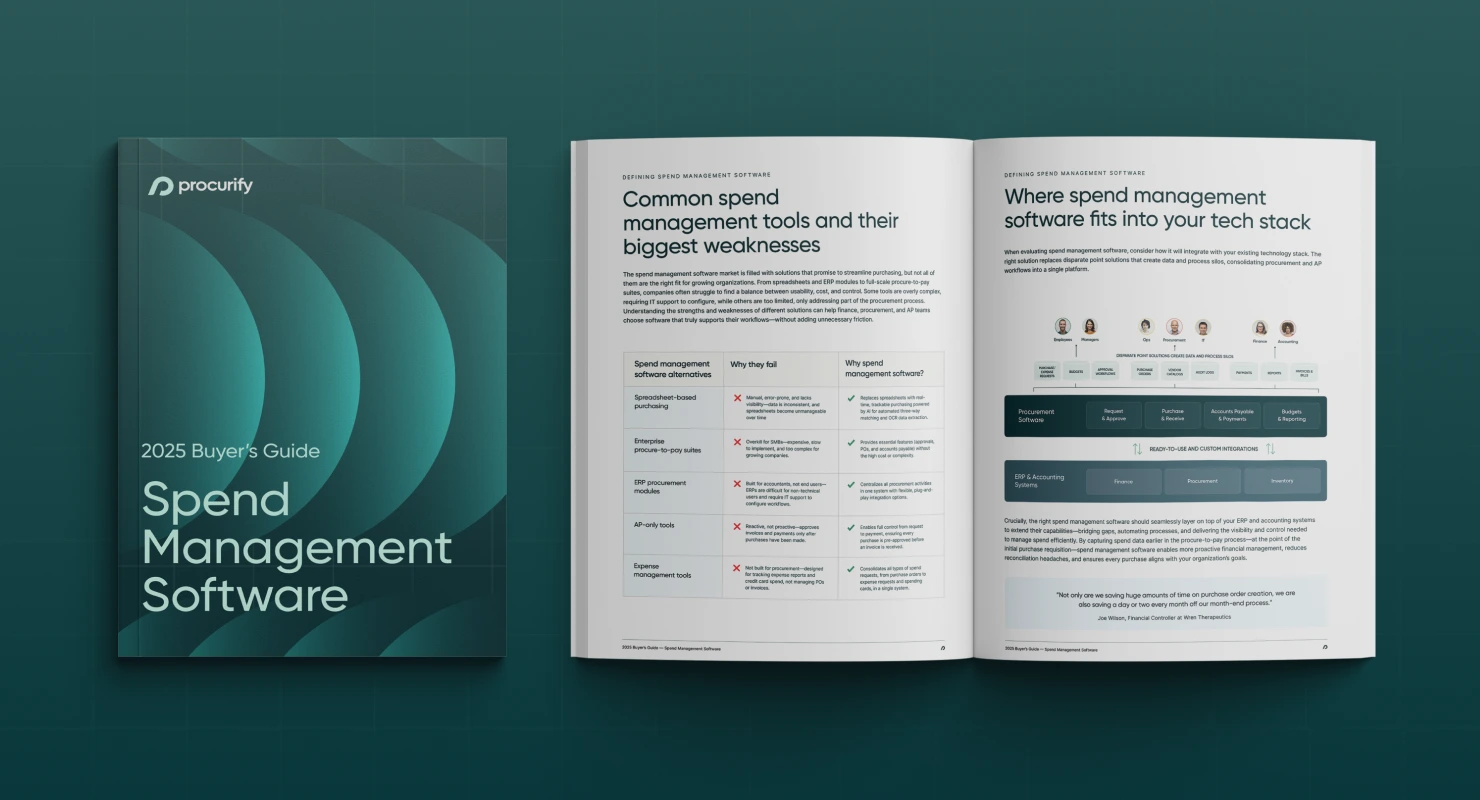What is Procurement Intelligence and How Can It Benefit Your Business?
Major shifts in the supply chain are impacting the future of procurement globally.
Companies all around the world are struggling to respond to emerging risks and disruptions in supply chains. As a result, procurement intelligence is now more important than ever. Procurement intelligence can help organizations develop strategic solutions and course-correct while navigating an increasingly volatile supply chain.
Luckily, technology helps companies mitigate risks, make strategic decisions, establish a sustainable procurement process, and increase transparency.
In December 2021, Gartner reported that “automation and advanced analytics for procurement are expected to mature greatly over the next two to five years, making investing in these technologies feasible even for risk-averse procurement organizations.”
According to Deloitte’s 2021 CPO survey, digital transformation is a priority for CPOs, especially because outdated systems such as Excel sheets, paper-based processes, and emails lead to poor data. The same survey shows that “data quality is the greatest barrier to the effective application of digital technology in procurement.”
Procurement intelligence leverages data analytics and helps businesses make their procurement process smarter, more cost-effective and sustainable. It’s not only about reducing costs, but also preparing for the future. Organizations that opt for a total digital transformation can benefit from the improvements procurement intelligence can bring.
In this article, we will explain what procurement intelligence is and how it benefits businesses.
Table of contents
- What is procurement intelligence?
- How does procurement intelligence benefit companies?
- The building blocks of procurement intelligence
- Supplier market intelligence
- Supply market intelligence
- Category intelligence
- Buying intelligence
- Spend intelligence and analytics
What is procurement intelligence?
To define procurement intelligence, it’s important to start with what it’s not.
Procurement intelligence isn’t just spend analytics; it encompasses all the elements involved in the procurement process, from supply market intelligence to market intelligence.
Procurement intelligence is about looking at historical data, contextualizing it, and predicting future trends or patterns while optimizing existing sourcing and purchasing actions. At its most advanced, it allows companies to make procurement or business decisions before possible scenarios come into effect.
Presently, procurement software in itself doesn’t provide procurement intelligence. It does, however, provide us with predictive analytics capabilities that help derive valuable insight about different components of procurement.
Deloitte’s 2021 CPO survey showed that the most valuable analytics for CPOs are; spend/saving performance analytics, process performance analytics, supply market intelligence, and total cost modeling and forecasting.
Companies who invest in procurement intelligence gain better insight into procurement’s larger role in profitability, growth and sustainability. The goal of procurement intelligence is to transform sourcing and purchasing, supplier relationships, and spending while automating cost-saving functions.
Improving your organization’s procurement intelligence relies on using procurement software for effective data collection and collaboration. Procurement software allows companies to see each department’s total spend, supplier contracts, and non-contracted spending.
How does procurement intelligence benefit companies?
Procurement intelligence can save organizations from operational and financial headaches. By leveraging procurement software, companies can gather data that inform smarter business and procurement decisions.
Information is power. Collecting and analyzing the correct procurement data supercharges a company’s access to information. As a result, intelligent procurement can help companies create innovative, sustainable and efficient sourcing strategies.
Here’s how procurement intelligence benefits companies:
1. Save money
Saving money is a CPO’s top priority. Intelligent procurement supports one of the biggest profit drivers, spend analytics. It can help companies save money and allows procurement teams to easily cost-compare new vendors, add a threshold on a project, employee or department spending, show spending patterns, and prevent over-payments with contract analysis.
2. Negotiate better bids
Intelligent procurement tools help procurement professionals evaluate market pricing and request fair prices. It prevents your team from entering any negotiation blind.
3. Gain better supplier insight
When supplier market intelligence is collected, procurement software can show companies where to buy and who to buy from. A 2018 study showed that 30% of companies reported suffering from “poor supplier performance and consistency.” Intelligent procurement tools help companies compare supplier performance and pricing, so they can work with tried-and-tested vendors who consistently provide the best value.
4. Create effective category plans
Procurement software helps build category intelligence over time. Category managers create categories and segment company spending according to similar or related products or services and organize the latter by value, supplier, type or volume. Procurement intelligence evaluates these category plans, which leads to enhanced scale and stronger supplier relationships.
5. Mitigate risk
Intelligent procurement helps companies make more strategic sourcing decisions. It considers both internal and external factors such as purchase needs and budget vs. supply shortages. Automation tools mitigate risks associated with wrong procurement decisions. It not only leads companies to work with the right vendors, but also reduces human errors such as repeat purchases or administrative mistakes.
6. Increase sustainability
The need for sustainable, transparent supply chains is growing every day. Procurement intelligence makes it easier for companies to align themselves with the right vendors and distribution channels and provides them with a long-term view of their spending, resources, and procurement process to make adjustments toward becoming more environmentally friendly and economically sustainable.
7. Assess all opportunities
Intelligent procurement tools enable companies to assess opportunities where a working relationship with a supplier can take a new shape. Whether sourcing products differently or updating contracts, companies can think differently about their sourcing and purchasing patterns.
8. Optimize your workflow
An obvious benefit of intelligent procurement is establishing areas where automation can optimize workflows. For example, getting automatic reminders of contract renewals can help companies save money and strengthen vendor relationships.
9. Promote growth and innovation
Data analysis often leads companies to find patterns, catch mistakes in their processes, and see the big picture of their operations. Intelligent procurement allows you to discover new knowledge about your company, suppliers, and industry so you can come up with new methods to promote growth and innovation.
The building blocks of procurement intelligence
As we mentioned, procurement intelligence is not only about knowing what your company spends. Here’s a run down of the building blocks of intelligent procurement.
Supplier market intelligence
Sourcing is one of the most important stages of procurement. It’s where the most money is saved and good working relationships are built. There’s always a degree of risk when working with a new vendor, so companies must have access to information about their suppliers. Procurement intelligence enables organizations to collect key performance indicators of suppliers, so companies can compare supplier performance rather than solely comparing costs.
Supply market intelligence
Procurement professionals must gather and analyze data about the company’s specific supply markets. Supply market intelligence encapsulates information about key suppliers, pricing, market trends, demand for supplied products or services, and more. This information makes it possible for companies to request competitive prices, anticipate surges in demand, and strengthen their negotiations. It’s also essential for creating more transparent supply chains and lowering the associated risks.
Category intelligence
Intelligent procurement tools build strategic categories for products and vendors by marrying supplier market and supply market intelligence. This allows you to make purchases faster and scale at the same time. The insights derived from category intelligence also helps stakeholders understand company spending on specific services and products and informs them when they need more supplier diversification or the opportunities for saving.
Buying intelligence
Gathering information about the cost drivers of your organization and gaining full visibility of your purchase spending make spend analytics possible. Buying intelligence is crucial for the procurement, accounts payable, and finance department teams to evaluate spending and optimize purchasing processes.
Spend intelligence and analytics
Spend intelligence and procurement intelligence used to be synonymous. However, the increasing use of software technology in procurement is pushing companies to make strategic decisions before they get to the checkout.
Nevertheless, spend analytics is still an important part of procurement intelligence, as it provides transparency and insight into companies’ cash flows. Ideally, spend intelligence must work with enterprise resource planning (ERP) systems to track procurement and finance functions in one platform.
Conclusion
Collecting data throughout the procurement process via procurement software is the first step in building procurement intelligence. According to Gartner, the next step is to use AI and machine learning to surface critical insights in less time and get auto-suggestions on actions to take.
Companies that use procurement software already benefit from advanced analytics features that help procurement teams save on costs, work with suggested suppliers, and predict future spending.
Procurement intelligence is only going to get more in-depth and advanced. Early adopters of procurement intelligence technology will have the competitive advantage to smoothen their procurement process and better their predictive and prescriptive analytics abilities.
Editor's note Original publish date: 5 Feb, 2014 Original author: Matt Lim We've since updated and republished this blog post with new content.

2025 Spend Management Software Buyer’s Guide
Choose the spend management solution best suited to your organization’s needs with an overview of the 2025 software ecosystem, feature comparisons, and a free vendor capability evaluation checklist.
